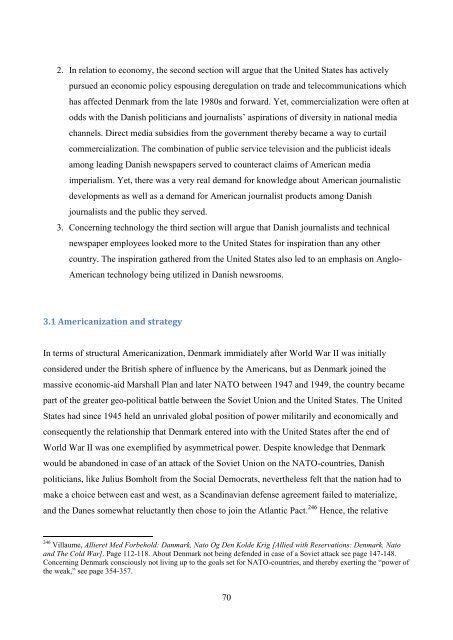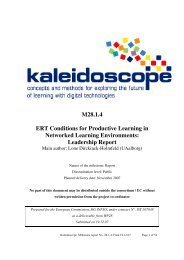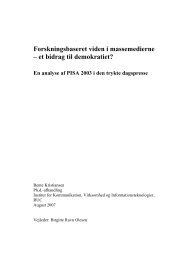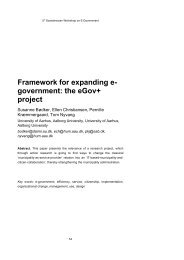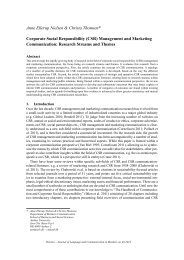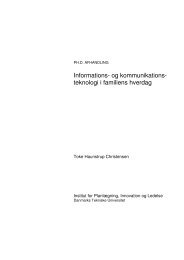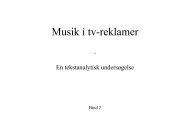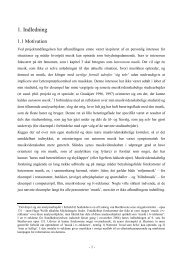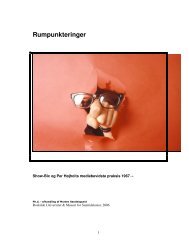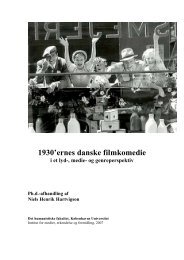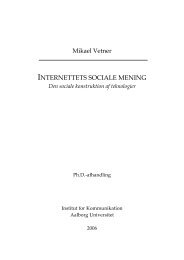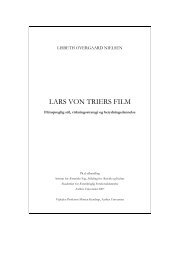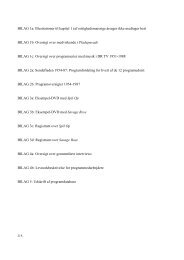The Jeremiad Over Journalism
The Jeremiad Over Journalism
The Jeremiad Over Journalism
Create successful ePaper yourself
Turn your PDF publications into a flip-book with our unique Google optimized e-Paper software.
2. In relation to economy, the second section will argue that the United States has actively<br />
pursued an economic policy espousing deregulation on trade and telecommunications which<br />
has affected Denmark from the late 1980s and forward. Yet, commercialization were often at<br />
odds with the Danish politicians and journalists‘ aspirations of diversity in national media<br />
channels. Direct media subsidies from the government thereby became a way to curtail<br />
commercialization. <strong>The</strong> combination of public service television and the publicist ideals<br />
among leading Danish newspapers served to counteract claims of American media<br />
imperialism. Yet, there was a very real demand for knowledge about American journalistic<br />
developments as well as a demand for American journalist products among Danish<br />
journalists and the public they served.<br />
3. Concerning technology the third section will argue that Danish journalists and technical<br />
newspaper employees looked more to the United States for inspiration than any other<br />
country. <strong>The</strong> inspiration gathered from the United States also led to an emphasis on Anglo-<br />
American technology being utilized in Danish newsrooms.<br />
3.1 Americanization and strategy<br />
In terms of structural Americanization, Denmark immidiately after World War II was initially<br />
considered under the British sphere of influence by the Americans, but as Denmark joined the<br />
massive economic-aid Marshall Plan and later NATO between 1947 and 1949, the country became<br />
part of the greater geo-political battle between the Soviet Union and the United States. <strong>The</strong> United<br />
States had since 1945 held an unrivaled global position of power militarily and economically and<br />
consequently the relationship that Denmark entered into with the United States after the end of<br />
World War II was one exemplified by asymmetrical power. Despite knowledge that Denmark<br />
would be abandoned in case of an attack of the Soviet Union on the NATO-countries, Danish<br />
politicians, like Julius Bomholt from the Social Democrats, nevertheless felt that the nation had to<br />
make a choice between east and west, as a Scandinavian defense agreement failed to materialize,<br />
and the Danes somewhat reluctantly then chose to join the Atlantic Pact. 246 Hence, the relative<br />
246 Villaume, Allieret Med Forbehold: Danmark, Nato Og Den Kolde Krig [Allied with Reservations: Denmark, Nato<br />
and <strong>The</strong> Cold War]. Page 112-118. About Denmark not being defended in case of a Soviet attack see page 147-148.<br />
Concerning Denmark consciously not living up to the goals set for NATO-countries, and thereby exerting the ―power of<br />
the weak,‖ see page 354-357.<br />
70


